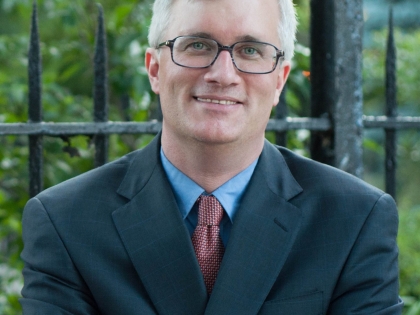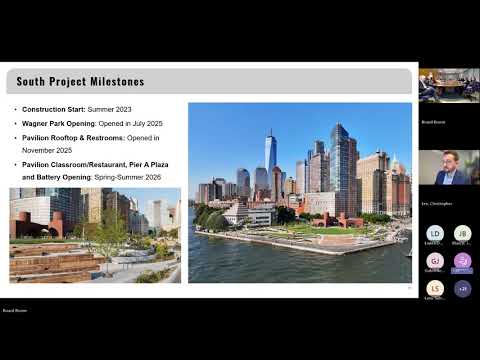
Senate Passes Kavanagh’s Battery Park City Legislation
June 3, 2022
-
ISSUE:
- Battery Park City
(New York, NY) State Senator Brian Kavanagh, who represents Battery Park City, announced that the Senate passed two bills he authored, S9031A and S9032B, that would help protect affordability for low-income seniors and residents with disabilities in Battery Park City, promote the long-term stability of the community, and provide for a majority of the Board of the Battery Park City Authority to be primary BPC residents.
“Battery Park City is a vibrant and economically diverse neighborhood and home to many residents who have lived in the community for decades,” said Senator Kavanagh, who chairs the Senate Housing Committee. “Over the past several months, I have worked with my elected colleagues, Community Board 1, and community groups on legislation that would ensure that residents have a strong say in matters affecting their daily lives and that present and future residents are protected from displacement. While we still have more work to do on the issues of stability and affordability, I am pleased that we were able to get these bills through the Senate and I hope that the Assembly will join us in passing them before adjourning.”
The bills include the following provisions.
Make BPC Residents Eligible for Rent Freeze and Property Tax Exemption Programs for Seniors and People with Disabilities
The Senior Citizens Rent Increase Exemption (SCRIE) and Disability Rent Increase Exemption (DRIE) programs freeze rents of eligible tenants throughout New York City at the amount they pay when their benefit is approved. SCRIE and DRIE are not currently available to residents of Battery Park City; the new legislation would make BPC residents eligible on the same basis as other New Yorkers.
To qualify for SCRIE, renters must have a head of the household who is at least 62 years of age and an annual household income of $50,000 or less, and must pay more than one-third of their income toward rent. To qualify for DRIE, a renter household must include a recipient of disability benefits (SSI, SSDI, VA disability compensation, or disability-related Medicaid) who is at least 18 years of age, have an annual household income of $50,000 or less, and pay more than one-third of their income toward rent.
Kavanagh’s legislation would extend SCRIE and DRIE to residents of Battery Park City residential rental properties that pay PILOTs whose apartments are covered by a regulatory agreement that limits the increases the landlord may impose. This would enable eligible tenants to have their rents frozen just as other New Yorkers can.
The Senior Citizen Homeowners’ Exemption (SCHE) and Disabled Homeowners’ Exemption (DHE) programs offer a property tax reduction of between 5% and 50% for eligible homeowners in New York City. Again, these programs are not currently available to BPC residents and this legislation would change that.
To qualify for SCHE, a homeowner must be at least 65 years of age, have a combined annual income among the owner and any co-owners of $58,399 or less, and own the property for at least 12 consecutive months prior to applying for the exemption. With limited exceptions owners must occupy the property as their primary residence. DHE is available for homeowners with a disability who meet the same income and primary residency requirements as SCHE; DHE does not require 12 consecutive months of ownership prior to applying for the exemption.
The benefits of SCHE and DHE are not currently available for homeowners who pay PILOTs rather than property taxes. The legislation would expand SCHE and DHE to include otherwise eligible homeowners in Battery Park City, reducing homeowners’ PILOTs in a manner comparable to the reductions in property taxes available to other New Yorkers.
Extend the Master Ground Lease
The Battery Park City Authority is about halfway into its 99.5-year master ground lease with the City of New York, which is set to expire on June 18, 2069. This in turn means that no individual ground lease between the Battery Park City Authority and Battery Park City buildings may extend beyond 2069. While this date is still decades away, some residents have expressed concern that it may become more difficult to obtain mortgages or other financing for BPC properties as the time remaining on the lease gets shorter and lenders may have less certainty as to the future status of the property.
The legislation would extend the master ground lease between BPCA and the City of New York by 50 years, to June 18, 2119. This will enable BPCA to extend ground leases with individual buildings.
Provide for a Resident Majority on the BPC Authority Board
The current Battery Park City Authority Board of Directors is composed of seven members, two of whom must be residents of Battery Park City. The Board makes many decisions that impact the residents of Battery Park City. The legislation would expand the Board from seven members to nine members, and require that a majority be primary residents of Battery Park City. All board members would continue to be required to have appropriate experience to serve on the board and would be required to recuse themselves in the event of a conflict of interest. Ensuring local representation will allow residents to have a meaningful voice in decisions that affect their community.
The bills now await a vote in the State Assembly. If passed, they would then need the Governor’s approval to be enacted into law.
# # #
